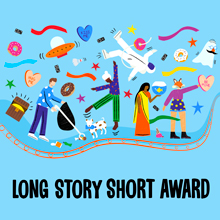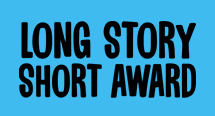Noun. Consistency in one's personhood regardless of externalities.
II cannot escape theveil on my
...
[+]
The London Fog has mostly cleared— factories have regulations, science has cleaned the refuse, and cars are built with our lungs in mind— but a smaller mist remains settled in. I walk through crowds, jostled by the indifferent masses, trying to do the breathing exercises that keep me safe. But yet, the cigarette smoke drifts through the air with an errant ease that mocks me. I pull my mask across my face, and some part of me is grateful for the excuse to put something between my throat and the little fires of the crowd. I stand outside a club that I don't really want to be in to see if I can fit in with the others, but the line is filled with other people my age that have similar self-destructive tendencies. I'll drink this poison, I'll burn this drug, I'll stand in this cold, all for the possibility of escaping the world for just one moment. Their ashes seek out my vulnerability. My mask is not strong enough to hold back the sickly sweet smell of marijuana from slipping in. My throat tightens like a noose and I swallow in a vain attempt to relax the muscles that have already begun to rebel. So I go home. I walk away from the neon lights and the pounding music and walk through the dirty streets with my arm on a friend's shoulder. I must have looked strange, making hissing noises and clicking my tongue like my physical therapist taught me, stepping over piles of dirty water and ironically discarded cigarettes. We reach home just in time. I drink a glass of water and she makes me a cup of tea until I can breathe again.
Smoke used to mean the future, the endless onslaught of innovation. Now our futuristic visions paint clean glass and clear skies, green energy, bright white chambers and glowing blue light. I am equally tempted by this purified possibility and the gritty, rusted foundations on which it stands. I could not have survived in the London of the past, I think. I'd be far too eager to escape to the countryside, as even now I yearn for the North Carolina seaside and Appalachian mountain retreats. But the London of the future is easily just as terrifying, as history is torn up to be replaced by still faced offices and digital advertisements. Cigarettes are replaced by vape pens and I wonder if I will ever be able to breathe in a world so packed with people struggling against each other in a violent dance of deadlines and digital dystopia.
Perhaps I am simply terrified by the approach of the future anyway. For me, the world is often divided into that which is safe and that which is dangerous. Every new thing has the capability to be dangerous, and thus every new experience approaches me with sharpened teeth. I feel as though I am pushed forward without option, forced to choose between paths of thorns and paths of barbed wire. Everything is moving too fast. Something is wrong. Stop the car.
But I did pick this city, and I did pick these dangers, and there is no way to put the world on pause. If the cold air hurts my lungs, I will simply grab a bigger scarf. And, after all, there are always friends to make you tea.
I continue to breathe.



